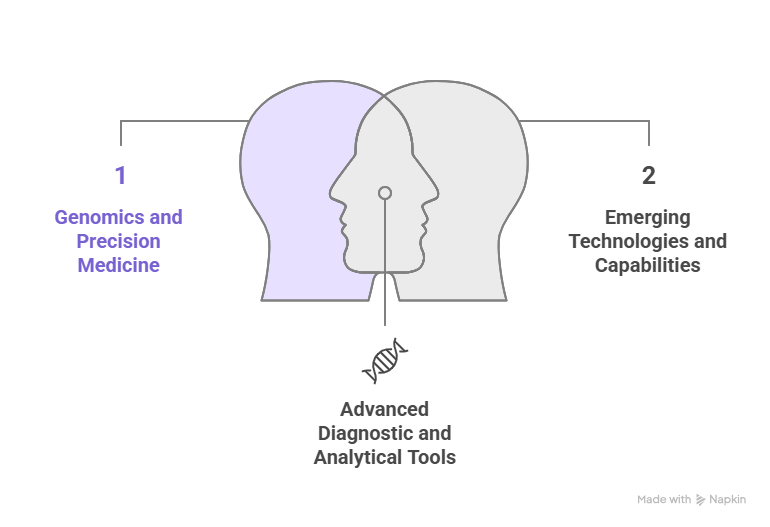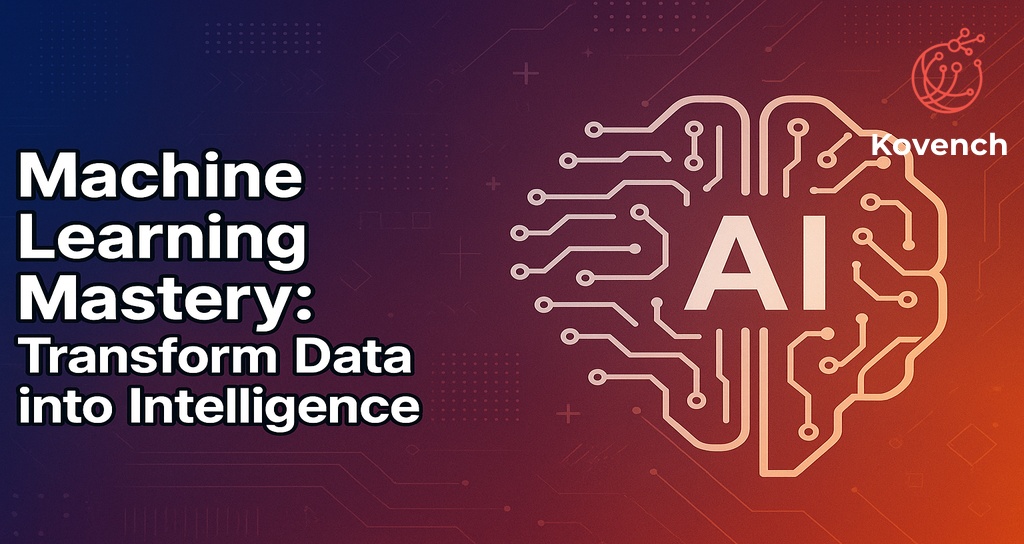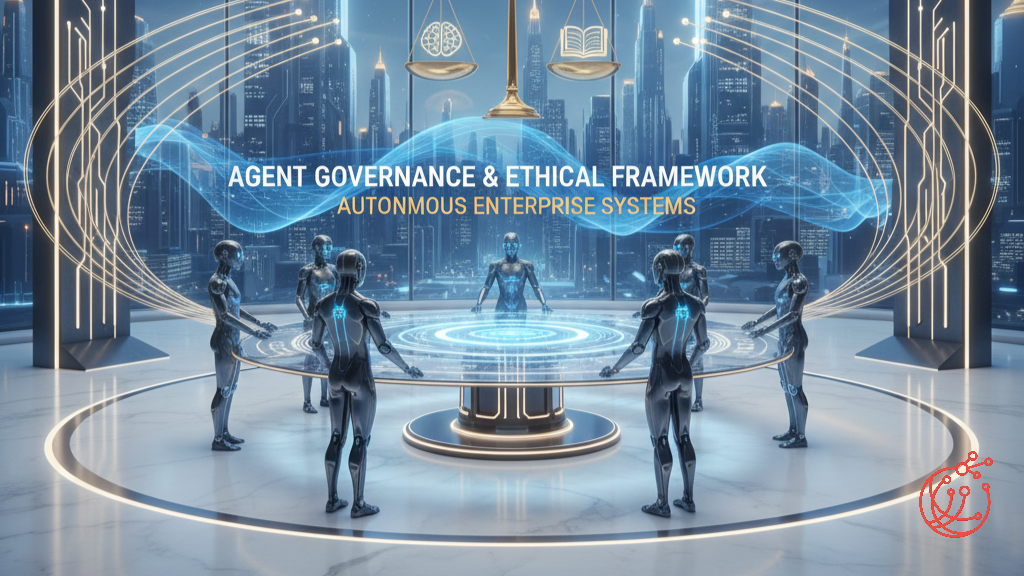Table Of Contents
1. Introduction
The traditional drug discovery process represents one of the most resource-intensive endeavors in modern science, requiring an average of 10-15 years and approximately $2.6 billion to bring a single drug from initial research to market approval. This lengthy timeline and astronomical cost have created significant barriers to pharmaceutical innovation, limiting the development of treatments for rare diseases and contributing to escalating healthcare costs worldwide. Moreover, the success rate remains discouragingly low, with only about 12% of drug candidates that enter clinical trials ultimately receiving regulatory approval.
These systemic challenges have intensified the pharmaceutical industry's search for transformative solutions. Artificial intelligence in pharma has emerged as a powerful catalyst for change, fundamentally reimagining how drugs are discovered, developed, and brought to patients. Machine learning algorithms can analyze vast biological datasets, predict molecular interactions, identify promising drug candidates, and optimize clinical trial designs with unprecedented speed and accuracy.
AI in drug discovery is not merely an incremental improvement to existing processes—it represents a paradigm shift that addresses the fundamental inefficiencies plaguing pharmaceutical research. By leveraging predictive analytics in healthcare, computational modeling, and data-driven decision-making, AI technologies are compressing timelines, reducing costs, and increasing the probability of success across the entire drug development lifecycle. As the pharmaceutical industry confronts mounting pressure to deliver innovative therapies more efficiently, artificial intelligence is proving to be an indispensable ally in the quest to transform scientific insights into life-saving medications.
2. The Role of AI in Early-Stage Research and Molecular Screening
2.1 Target Identification and Validation
The drug discovery journey begins with identifying biological targets—typically proteins, genes, or pathways—that play critical roles in disease processes. AI algorithms excel at mining genomic databases, proteomic studies, and scientific literature to identify novel therapeutic targets that might otherwise remain undiscovered. Machine learning models can analyze complex biological networks, predicting which targets are most likely to be druggable and therapeutically relevant.
Deep learning systems can process millions of data points from diverse sources, including genetic studies, patient records, and experimental results, to uncover previously unknown relationships between biological targets and disease mechanisms. This capability dramatically expands the pool of potential therapeutic targets while simultaneously reducing the risk of pursuing targets that are unlikely to yield effective treatments.
2.2 Molecular Screening and Hit Identification
Once potential targets are identified, researchers must screen vast libraries of chemical compounds to find molecules that interact with these targets in therapeutically beneficial ways. Traditional high-throughput screening methods can test thousands of compounds, but AI-powered virtual screening can evaluate billions of molecular structures in silico, dramatically expanding the search space while reducing laboratory costs.
Generative AI models have introduced an entirely new dimension to molecular screening by designing novel chemical structures with desired properties. These algorithms can generate molecular candidates that do not exist in any chemical library, creating entirely new chemical matter optimized for specific therapeutic objectives. Companies like Insilico Medicine have demonstrated the viability of this approach, using AI to design novel drug candidates for fibrosis and other conditions in a fraction of the time required by conventional methods.
3. AI in Predicting Drug-Target Interactions
Understanding how drug molecules interact with biological targets is crucial for predicting efficacy and safety. AI models trained on extensive datasets of known drug-target interactions can predict binding affinities, molecular mechanisms, and potential off-target effects with remarkable accuracy. These predictions help researchers prioritize the most promising candidates for further development while identifying potential safety concerns early in the process.
Structure-based drug design has been revolutionized by AI systems capable of predicting three-dimensional protein structures and modeling drug-protein interactions at atomic resolution. AlphaFold, developed by DeepMind, has solved one of biology's grand challenges by accurately predicting protein structures from amino acid sequences. This breakthrough has profound implications for drug discovery, enabling researchers to understand target proteins and design molecules that interact with them more precisely.
Machine learning models also predict pharmacokinetic properties—how drugs are absorbed, distributed, metabolized, and excreted by the body—allowing researchers to optimize molecular structures for better bioavailability and reduced toxicity. By predicting these properties computationally, AI reduces the need for extensive animal testing and accelerates the transition from laboratory research to human trials.
4. AI in Clinical Trial Design and Patient Recruitment

4.1 Optimizing Trial Design and Patient Stratification
Clinical trials represent the most expensive and time-consuming phase of drug development. AI technologies are transforming trial design by analyzing historical trial data to identify optimal dosing regimens, endpoint selections, and patient inclusion criteria. Machine learning algorithms can predict which trial designs are most likely to demonstrate efficacy while minimizing patient exposure and trial duration.
Predictive analytics enable more precise patient stratification, identifying biomarkers and patient characteristics that correlate with treatment response. This capability is particularly valuable in developing precision medicine approaches, where treatments are tailored to specific patient populations most likely to benefit. By enrolling patients with higher probabilities of positive outcomes, AI-powered stratification increases trial success rates while reducing the number of participants needed to achieve statistical significance.
4.2 Accelerating Patient Recruitment
Patient recruitment consistently ranks among the most challenging aspects of clinical trials, with many studies experiencing significant delays due to enrollment difficulties. AI systems can analyze electronic health records across healthcare networks to identify patients who meet specific trial criteria, dramatically reducing the time required to build study cohorts. Natural language processing algorithms can extract relevant clinical information from unstructured medical records, identifying eligible patients who might otherwise be overlooked.
Furthermore, AI-driven platforms can predict patient dropout rates and identify factors that contribute to non-compliance, allowing trial sponsors to implement retention strategies proactively. These capabilities collectively reduce trial timelines, lower costs, and improve the quality of clinical evidence supporting regulatory submissions.
5. Cost and Time Reduction Benefits of AI Adoption
The economic impact of AI in drug discovery extends across the entire development pipeline. Early-stage research benefits from reduced laboratory expenses as virtual screening replaces extensive physical testing. Pharmaceutical companies report cost savings of 30-50% in preclinical development through AI implementation, primarily by reducing failed experiments and accelerating lead optimization.
Clinical development, which typically accounts for over 60% of total drug development costs, sees even more substantial benefits. AI-optimized trial designs reduce participant numbers, shorten study durations, and increase success rates—each contributing to significant cost reductions. Industry analyses suggest that comprehensive AI integration could reduce average drug development costs by $50-100 million per approved therapy while compressing timelines by 2-4 years.
Beyond direct cost savings, AI accelerates time-to-market for innovative therapies, generating earlier revenue streams and extending effective patent protection periods. For pharmaceutical companies, this temporal advantage translates into substantial financial returns while simultaneously delivering life-saving treatments to patients sooner. The competitive advantage conferred by AI capabilities is driving widespread adoption across the industry, from established pharmaceutical giants to biotechnology startups.
6. Real-World Applications and Case Studies
6.1 Pharmaceutical Industry Adoption
Leading pharmaceutical companies have established dedicated AI research units and partnerships with technology firms to integrate machine learning throughout their pipelines. Pfizer has deployed AI systems to accelerate target identification and optimize clinical trial designs across multiple therapeutic areas. The company's AI platforms analyze diverse datasets to identify patient subpopulations and predict trial outcomes, contributing to more efficient development programs.
Roche has invested heavily in AI-driven drug discovery, partnering with technology companies to develop machine learning models for target validation and biomarker discovery. These initiatives have produced promising candidates in oncology and neuroscience, demonstrating the practical value of AI integration in addressing complex therapeutic challenges.
Novartis has implemented AI across its entire drug discovery pipeline, from target identification through clinical development. The company reports that AI-identified drug candidates are progressing through development stages significantly faster than those discovered through traditional methods, validating the technology's potential to transform pharmaceutical R&D fundamentally.
6.2 Biotechnology Success Stories
Smaller biotechnology companies have demonstrated remarkable success by building AI-first drug discovery platforms. Recursion Pharmaceuticals uses computer vision and machine learning to analyze cellular images at massive scale, identifying disease mechanisms and potential therapeutic interventions. The company has advanced multiple programs into clinical trials using this approach, demonstrating that AI-driven discovery can match or exceed traditional methods in productivity and innovation.
Exscientia made headlines by advancing the first AI-designed drug molecule into human clinical trials, achieving this milestone in under 12 months compared to the typical 4-5 years required for conventional discovery programs. This achievement illustrates AI's potential to fundamentally compress drug development timelines while maintaining rigorous safety and efficacy standards.
7. Challenges and Considerations
7.1 Data Quality and Integration
The effectiveness of AI models depends critically on the quality, diversity, and completeness of training data. Pharmaceutical datasets often suffer from inconsistencies, biases, and incomplete annotations that can compromise model performance. Integrating data from disparate sources—genomic databases, clinical records, chemical libraries, and scientific literature—presents significant technical challenges requiring sophisticated data management infrastructure.
Proprietary data silos within pharmaceutical companies limit the datasets available for model training, potentially constraining AI system capabilities. While some industry consortia are working to create shared databases, concerns about intellectual property protection and competitive advantage continue to impede data sharing efforts. Addressing these data challenges will be essential for realizing AI's full potential in drug discovery.
7.2 Regulatory Approval and Validation
Regulatory agencies are still developing frameworks for evaluating AI-derived drug candidates and AI-optimized clinical trial designs. Questions remain about how to validate AI predictions, ensure reproducibility, and maintain appropriate human oversight throughout the development process. The pharmaceutical industry and regulatory bodies must collaborate to establish clear guidelines that ensure patient safety while enabling innovation.
The interpretability of AI models—often described as the "black box" problem—raises particular concerns for regulators accustomed to mechanistic explanations of drug actions and trial designs. Developing explainable AI systems that provide transparent reasoning for their predictions will be crucial for regulatory acceptance and clinical adoption.
7.3 Ethical Considerations
AI implementation in drug discovery raises important ethical questions about data privacy, algorithmic bias, and equitable access to resulting therapies. Machine learning models trained predominantly on data from specific demographic groups may produce less effective predictions for underrepresented populations, potentially exacerbating existing healthcare disparities. Ensuring that AI systems are trained on diverse, representative datasets is essential for developing treatments that benefit all patient populations.
The potential for AI to accelerate drug discovery also raises questions about pricing and access. Will AI-enabled cost reductions translate into more affordable medications, or will pharmaceutical companies capture these savings as increased profits? Policymakers, industry leaders, and patient advocates must engage in ongoing dialogue to ensure that AI-driven pharmaceutical innovation serves broad public health interests.
8. The Future of AI in Drug Discovery

8.1 Integration with Genomics and Precision Medicine
The convergence of AI with genomic medicine promises to usher in an era of truly personalized therapeutics. Machine learning algorithms can analyze individual genetic profiles to predict drug responses, identify optimal treatment regimens, and anticipate adverse reactions. This integration enables precision medicine approaches where treatments are tailored to each patient's unique biological characteristics.
Multi-omic data integration—combining genomics, proteomics, metabolomics, and other biological datasets—will provide increasingly comprehensive views of disease mechanisms and therapeutic opportunities. AI systems capable of synthesizing these complex, multi-dimensional datasets will identify novel therapeutic strategies and patient stratification approaches that would be impossible to discern through traditional analytical methods.
8.2 Emerging Technologies and Capabilities
Quantum computing may eventually enhance AI drug discovery capabilities by enabling even more complex molecular simulations and optimization algorithms. While practical quantum applications remain years away, proof-of-concept studies suggest potential for revolutionary advances in computational chemistry and drug design.
Automated laboratories integrating AI decision-making with robotic experimentation—often called "self-driving labs"—represent another frontier in pharmaceutical research. These systems can design experiments, execute them autonomously, analyze results, and iteratively refine hypotheses without human intervention, potentially accelerating discovery processes by orders of magnitude.
Real-world evidence platforms combining AI analytics with longitudinal patient data from electronic health records will provide unprecedented insights into drug effectiveness, safety profiles, and optimal usage patterns. These post-market surveillance capabilities will enable continuous learning and optimization of therapeutic approaches, extending AI's impact beyond initial drug development into ongoing clinical practice.
8.3 Democratizing Drug Discovery
AI technologies may eventually democratize drug discovery, enabling academic institutions and smaller organizations to participate more effectively in pharmaceutical innovation. Cloud-based AI platforms and open-source tools are reducing barriers to entry, allowing researchers without extensive computational resources to leverage sophisticated machine learning capabilities. This democratization could accelerate progress on neglected diseases and rare conditions that have not attracted sufficient commercial interest under traditional development models.
9. Frequently Asked Questions
How is artificial intelligence used in drug discovery?
AI in drug discovery encompasses multiple applications across the development pipeline. Machine learning algorithms identify disease targets by analyzing biological databases and scientific literature. Generative AI designs novel molecular structures optimized for specific therapeutic objectives. Predictive models forecast drug-target interactions, pharmacokinetic properties, and potential toxicities. In clinical development, AI optimizes trial designs, identifies eligible patients, and predicts treatment outcomes. These capabilities collectively reduce costs, accelerate timelines, and increase the probability of developing successful therapies.
What are the main benefits of using AI in pharmaceutical research?
The primary benefits include significantly reduced development timelines, with AI potentially compressing drug discovery from years to months in some cases. Cost reductions of 30-50% in preclinical development and substantial savings in clinical trials make pharmaceutical R&D more economically viable. AI increases success rates by identifying more promising candidates and predicting failures earlier in development. Additionally, AI enables exploration of larger chemical spaces and identification of novel therapeutic targets that traditional methods might miss, driving pharmaceutical innovation.
Which pharmaceutical companies are leading in AI drug discovery?
Major pharmaceutical companies including Pfizer, Roche, Novartis, and Sanofi have established comprehensive AI drug discovery programs. Biotechnology companies like Recursion Pharmaceuticals, Exscientia, Insilico Medicine, and Atomwise have built AI-first discovery platforms demonstrating impressive results. Technology companies including Google DeepMind, IBM Watson Health, and Microsoft are partnering with pharmaceutical firms to develop specialized AI tools. The landscape is rapidly evolving, with new collaborations and AI-focused drug discovery companies emerging regularly.
What challenges does AI face in drug development?
Key challenges include data quality issues, as AI models require large, diverse, high-quality datasets that are often difficult to obtain in pharmaceutical research. Regulatory uncertainty exists around validating AI-designed molecules and AI-optimized trials. The "black box" nature of some AI models creates interpretability challenges for regulators and clinicians. Integration with existing pharmaceutical workflows requires significant infrastructure investment and organizational change. Additionally, ensuring AI systems produce unbiased predictions across diverse patient populations remains an ongoing concern requiring careful dataset curation and model validation.
Will AI replace human scientists in drug discovery?
AI will not replace human scientists but rather augment their capabilities and transform their roles. While AI excels at analyzing vast datasets, identifying patterns, and making predictions, human expertise remains essential for formulating research questions, interpreting results in biological context, designing experiments, and making strategic decisions about development priorities. The future of pharmaceutical research involves collaborative intelligence, where AI handles computationally intensive analysis while human scientists provide creativity, contextual understanding, and ethical judgment that machines cannot replicate.
10. Conclusion
Artificial intelligence represents a transformative force in pharmaceutical research, addressing fundamental inefficiencies that have constrained drug discovery for decades. By accelerating target identification, enabling virtual screening of vast chemical spaces, optimizing clinical trial designs, and predicting therapeutic outcomes, AI technologies are compressing development timelines and reducing costs across the entire drug development lifecycle. Real-world successes from leading pharmaceutical companies and innovative biotechnology firms validate AI's potential to deliver tangible improvements in research productivity and innovation.
The integration of AI in drug discovery extends beyond operational efficiency to enable entirely new approaches to pharmaceutical research. Generative design of novel molecules, precision patient stratification, and multi-omic data integration are creating opportunities for therapeutic innovation that were previously unimaginable. As these technologies mature and become more widely accessible, they promise to accelerate progress on challenging diseases and expand treatment options for patients worldwide.
However, realizing AI's full potential requires addressing significant challenges around data quality, regulatory frameworks, and ethical considerations. The pharmaceutical industry, regulatory agencies, technology developers, and healthcare stakeholders must collaborate to establish standards, share data responsibly, and ensure that AI-driven innovations serve broad public health interests. With thoughtful implementation and ongoing refinement, artificial intelligence is poised to catalyze a new era of pharmaceutical innovation—one characterized by faster discoveries, lower costs, and more effective treatments for the diseases that afflict humanity.
The question is no longer whether AI will transform drug discovery, but how quickly the industry can adapt to harness these powerful capabilities effectively. Organizations that strategically integrate AI throughout their research operations will be best positioned to lead pharmaceutical innovation in the coming decades, ultimately delivering better therapeutic options to patients who need them most.







